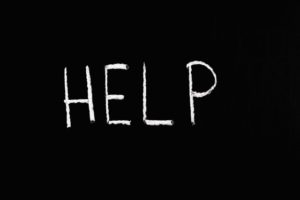Do you agonise in fear of going into public places because of your 3 year old anger issues?
Has your toddler ever thrown a massive tantrum at the supermarket because you won’t buy them something they want?
At playtime, does your child share well with others, or do they get angry when their favourite toy is used by someone else?
It’s normal for your 3-year old child to get angry sometimes as part of their mental development.
The reasons for this can be as varied; from the frustration of learning new things to hunger, or tiredness.
There are several things you can do as a parent to manage your 3-year old’s anger issues.
How To Manage Your 3 Year Old Anger Issues
1. Setting an Example
Three- year old’s are very impressionable and will try to copy everything you do.
Keep this in mind whenever you’re mad and try not to raise your voice or hit anything.
Instead, staying calm when provoked and walking away will teach your child that aggression is not always the answer when you’re angry.
They should learn conflict resolution from your example.
2. Don’t Give In
As a parent, providing for your child’s every need is your number one goal.
However, that shouldn’t apply when your child is throwing a tantrum to get something.
As hard as it may be, ignoring and not giving them what they want at that moment will reinforce good behavior.
With this, your 3-year old will know that angry outbursts will not be tolerated.
3. Find Out Your Child’s Triggers
After an angry outburst, wait for a few minutes and sit down with your child to find out the cause.
Explain to them the various ways they could have handled the situation better and ask them what they have learned.
If it is something that can be fixed or walked away from, involve your child in the process.
It is important to make your 3-year old feel safe, and not like they are in trouble at this time.
4. Be Consistent
Create a pattern of how you deal with anger issues and stick to it.
Negative consequences to tantrums, such as time outs or the loss of a privilege, should be the same every time.
This way, your child will know what to expect when this happens, and it will help them regulate their behavior to avoid suffering.
5. Reward Good Behavior
Your 3-year old needs to see that you also notice when they do good. So, make sure you notice and reward them.
This is especially important when they show self-control in tense situations instead of getting angry.
Show them that you’re happy and proud of them.
6. Teaching Responsibility
If your child breaks someone’s toy or damages property while throwing a temper tantrum, it must be their responsibility to help fix it.
This will reinforce that there are consequences to bad behavior.
Next time, they’ll think twice about doing something like that.
Teach your child hoe to own up to their mistakes and to apologize in person.
Related Post: Can 3-Year-Olds Read
7. Get Help
If your 3-year old is having more frequent anger issues, it may be time to call in a professional.
Often, an undiagnosed learning disorder may cause your child to randomly lash out and be aggressive towards others because of frustration.
Emotional Signs of Anger in a 2 Year Old
When a child is angry, any shouting competition between the two of you will get you nowhere; instead, try being calm, so you have enough patience to talk in a slow, loving, and understanding manner.
In short, speak to the child but keep your speech at a minimum.
You can achieve this with the below phrases:
- I love you
- I am here for you
- Please, talk to me
- I know you are angry, let me know when we can talk about it
- I know you are mad, let me help you
Another option is to have a safe spot where they are free to express their anger.
Ensure there are no harmful objects in the area or items that the child can throw and break.
It doesn’t mean that the child will know to go to the safe spot anytime they are angry, so you can try setting up different spots if you live in a large house.
What Causes Anger Issues in a Child
One common cause of anger issue in children is when they do not get what they want.
You can easily experience these when your child wants candy or some treats, watch a particular TV program, or want to play, but you say no.
the anger can also crop from asking the child to do something they do not want to do.
Again, you can or might have experienced this when you ask your child to go to bed, take a shower, or send them to get something for you when they are busy with their activities.
In some instances, children’s anger issues have a deeper rooted health issue, like autism, ADHD (Attention Deficit Hyperactivity Disorder), Tourette’s syndrome, and obsessive-compulsive disorder.
If your child’s anger issues are extreme, I would recommend having a doctor diagnose any of these health issues properly.
A professional will offer personalized treatment methods that meet your child’s needs and personality.
Also, the child’s environment, plus their genetics, might contribute to their anger issues.
The environment is not just in the physical aspect, but also how the adults in the surrounding behave – like instilling harsh punishments, family fights inconsistent punishment methods and other parenting styles.
Emotional Signs of Anger in a 2 Year Old
Usually, there are some signs of anger in kids.
The below are great pointers of emotional signs of anger in a 2-year-old:
- Screaming
- Biting
- Endless crying
- Hitting
- Throwing away items
- Kicking
Understanding how to combat 3 year old anger issues involves patience and being practical with your discipline.
Remember that toddlers will need lots of trial and error.
Here’s a quick video on How to deal with anger in children? – Parenting Tips
https://www.youtube.com/watch?v=TqQ5xM2x1Gs

Iesha is a loving mother of 2 beautiful children. She’s an active parent who enjoys indoor and outdoor adventures with her family. Her mission is to share practical and realistic parenting advice to help the parenting community becoming stronger.




